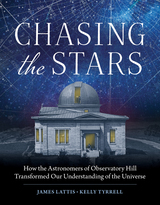14 start with W start with W
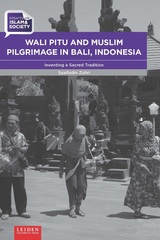
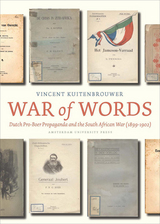
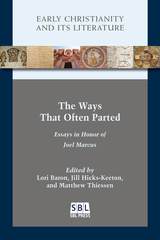
Focused studies on the historical interactions and formations of Judaism and Christianity
This volume of essays, from an internationally renowned group of scholars, challenges popular ways of understanding how Judaism and Christianity came to be separate religions in antiquity. Essays in the volume reject the belief that there was one parting at an early point in time and contest the argument that there was no parting until a very late date. The resulting volume presents a complex account of the numerous ways partings occurred across the ancient Mediterranean spanning the first four centuries CE.
Features:
- Case studies that explore how Jews and Christians engaged in interaction, conflict, and collaboration
- Examinations of the gospels, Paul’s letters, the book of James, as well as rabbinic and noncanonical Christian texts
- New evidence for historical reconstructions of how Christianity came on the world scene
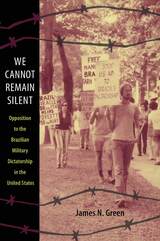
Green interviewed many of the activists who educated journalists, government officials, and the public about the abuses taking place under the Brazilian dictatorship. Drawing on those interviews and archival research from Brazil and the United States, he describes the creation of a network of activists with international connections, the documentation of systematic torture and repression, and the cultivation of Congressional allies and the press. Those efforts helped to expose the terror of the dictatorship and undermine U.S. support for the regime. Against the background of the political and social changes of the 1960s and 1970s, Green tells the story of a decentralized, international grassroots movement that effectively challenged U.S. foreign policy.
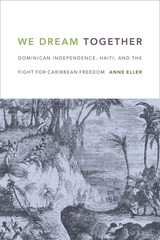
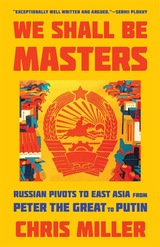
An illuminating account of Russia’s attempts—and failures—to achieve great power status in Asia.
Since Peter the Great, Russian leaders have been lured by opportunity to the East. Under the tsars, Russians colonized Alaska, California, and Hawaii. The Trans-Siberian Railway linked Moscow to Vladivostok. And Stalin looked to Asia as a sphere of influence, hospitable to the spread of Soviet Communism. In Asia and the Pacific lay territory, markets, security, and glory.
But all these expansionist dreams amounted to little. In We Shall Be Masters, Chris Miller explores why, arguing that Russia’s ambitions have repeatedly outstripped its capacity. With the core of the nation concentrated thousands of miles away in the European borderlands, Russia’s would-be pioneers have always struggled to project power into Asia and to maintain public and elite interest in their far-flung pursuits. Even when the wider population professed faith in Asia’s promise, few Russians were willing to pay the steep price. Among leaders, too, dreams of empire have always been tempered by fears of cost. Most of Russia’s pivots to Asia have therefore been halfhearted and fleeting.
Today the Kremlin talks up the importance of “strategic partnership” with Xi Jinping’s China, and Vladimir Putin’s government is at pains to emphasize Russian activities across Eurasia. But while distance is covered with relative ease in the age of air travel and digital communication, the East remains far off in the ways that matter most. Miller finds that Russia’s Asian dreams are still restrained by the country’s firm rooting in Europe.

Since November 8, 1942, when American troops in Operation Torch first landed on the beaches of North Africa, almost a million Americans—military personnel and their dependents—have lived in Morocco. Their impact on the political and social evolution of Morocco has been significant, but historians and political scientists before this book had made little effort to chart its course or to assess its outcome.
The naval base at Port Lyautey in Morocco was the first foreign base captured by American troops in World War II, and United States objectives in Morocco continued to be primarily military. In 1942, as the price for French support against the Axis, the United States pledged its support for the restoration of the prewar French colonial empire. In 1950, faced with the threat of Soviet aggression, the United States negotiated an agreement with France and built four United States Air Force bases in Morocco without consultation with or notification of the Moroccan government.
In spite of its sterile diplomatic policy and both Communist and Moroccan nationalist demands for evacuation of United States military bases, the United States retained essential military facilities in Morocco for many years. Leon Blair concludes that American military personnel and their dependents favorably conditioned Moroccan public opinion. By their egalitarianism, humanitarianism, and evident interest, they reinforced the idealistic image of the United States that was held by the majority of Moroccans.
These Americans were neither individually nor collectively conscious agents in a campaign to modify Moroccan public opinion; they were simply a Western window in the Arab world, through which two civilizations might view one another. In the long run, they made a greater contribution in peace than in war.
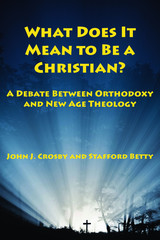
The debate between the two friends is presented here in the form of a correspondence they conducted over a period of two years (and did not originally intend for publication). It has undergone very little editing and revision; the authors have wanted to preserve the spontaneous give and take of their exchange. Together they have produced a work of philosophical dialogue that is unusually fruitful in its ability to clarify some fundamental issues of religion.
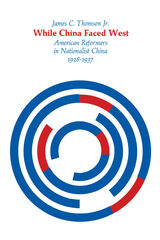
The years from 1928 to 1937 were the “Nanking decade” when the Chinese Nationalist government strove to build a new China with Western assistance. This was an interval of hope between the turbulence of the warlord-ridden twenties and the eight-year war with Japan that began in 1937. James Thomson explores the ways in which Americans, both missionaries and foundation representatives, tried to help the Chinese government and Chinese reformers undertake a transformation of rural society. His is the first in-depth study of these efforts to produce radical change and at the same time avoid the chaos and violence of revolution.
Despite the conservatism of the right wing in the Kuomintang party dictatorship, this Nanking decade saw many promising beginnings. American missionaries—the largest group of Westerners in the Chinese hinterland—often took the initiative locally, and some rallied to support of China’s first modern-minded government. They assisted both in rural reconstruction programs and in efforts of at ideological reform. Thomson analyzes the work of the National Christian Council in an area of Kiangsi province recently recovered from Communist rule. He also traces the deepening involvement of missionaries and the Chinese Christian Church in the “New Life Movement,” sponsored by Chiang Kai-shek.
Unhappily aware of the sharpening polarization of Chinese politics, these American reformers struggled in vain to steer clear of too close an identification with the ruling party. Yet they found themselves increasingly identified with the Nanking regime and their reform efforts obstructed by its disinclination or inability to revolutionize the Chinese countryside. In this way, American reformers in Nationalist China were forerunners of subsequent American attempts, under government sponsorship, to find a middle path between revolution and reaction in other situations of national upheaval.
For this book, James Thomson has used hitherto unexplored archives that document the participation of American private citizens in the process of Chinese social, economic, and political change.
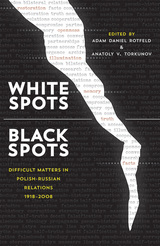
This pioneering study, prepared by the semi-official Polish-Russian Group on Difficult Matters, is a comprehensive effort to document and fully disclose the major conflicts and interrelations between the two nations from 1918 to 2008, events that have often been avoided or presented with a strong political bias. This is the English translation of this major study, which has received acclaim for its Polish and Russian editions.
The chapters offer parallel histories by prominent Polish and Russian scholars who recount each country’s version of the event in question. Among the topics discussed are the 1920 Polish-Russian war, the origins of World War II and the notorious Hitler-Stalin pact, the infamously shrouded Katyn massacre, the communization of Poland, Cold War relations, the Solidarity movement and martial law, and the renewed relations of contemporary Poland and Russia.
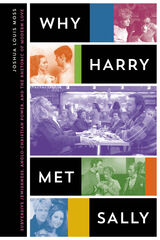
From immigrant ghetto love stories such as The Cohens and the Kellys (1926), through romantic comedies including Meet the Parents (2000) and Knocked Up (2007), to television series such as Transparent (2014–), Jewish-Christian couplings have been a staple of popular culture for over a century. In these pairings, Joshua Louis Moss argues, the unruly screen Jew is the privileged representative of progressivism, secular modernism, and the cosmopolitan sensibilities of the mass-media age. But his/her unruliness is nearly always contained through romantic union with the Anglo-Christian partner. This Jewish-Christian meta-narrative has recurred time and again as one of the most powerful and enduring, although unrecognized, mass-culture fantasies.
Using the innovative framework of coupling theory, Why Harry Met Sally surveys three major waves of Jewish-Christian couplings in popular American literature, theater, film, and television. Moss explores how first-wave European and American creators in the early twentieth century used such couplings as an extension of modernist sensibilities and the American “melting pot.” He then looks at how New Hollywood of the late 1960s revived these couplings as a sexually provocative response to the political conservatism and representational absences of postwar America. Finally, Moss identifies the third wave as emerging in television sitcoms, Broadway musicals, and “gross-out” film comedies to grapple with the impact of American economic globalism since the 1990s. He demonstrates that, whether perceived as a threat or a triumph, Jewish-Christian couplings provide a visceral, easily graspable, template for understanding the rapid transformations of an increasingly globalized world.
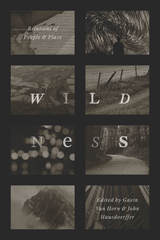
This book charts a different path. Exploring how people can become attuned to the wild community of life and also contribute to the well-being of the wild places in which we live, work, and play, Wildness brings together esteemed authors from a variety of landscapes, cultures, and backgrounds to share their stories about the interdependence of everyday human lifeways and wildness. As they show, far from being an all or nothing proposition, wildness exists in variations and degrees that range from cultivated soils to multigenerational forests to sunflowers pushing through cracks in a city alley. Spanning diverse geographies, these essays celebrate the continuum of wildness, revealing the many ways in which human communities can nurture, adapt to, and thrive alongside their wild nonhuman kin.
From the contoured lands of Wisconsin’s Driftless region to remote Alaska, from the amazing adaptations of animals and plants living in the concrete jungle to indigenous lands and harvest ceremonies, from backyards to reclaimed urban industrial sites, from microcosms to bioregions and atmospheres, manifestations of wildness are everywhere. With this book, we gain insight into what wildness is and could be, as well as how it might be recovered in our lives—and with it, how we might unearth a more profound, wilder understanding of what it means to be human.
Wildness: Relations of People and Place is published in association with the Center for Humans and Nature, an organization that brings together some of the brightest minds to explore and promote human responsibilities to each other and the whole community of life. Visit the Center for Humans and Nature's Wildness website for upcoming events and a series of related short films.
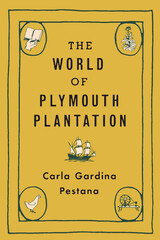
An intimate look inside Plymouth Plantation that goes beyond familiar founding myths to portray real life in the settlement—the hard work, small joys, and deep connections to others beyond the shores of Cape Cod Bay.
The English settlement at Plymouth has usually been seen in isolation. Indeed, the colonists gain our admiration in part because we envision them arriving on a desolate, frozen shore, far from assistance and forced to endure a deadly first winter alone. Yet Plymouth was, from its first year, a place connected to other places. Going beyond the tales we learned from schoolbooks, Carla Gardina Pestana offers an illuminating account of life in Plymouth Plantation.
The colony was embedded in a network of trade and sociability. The Wampanoag, whose abandoned village the new arrivals used for their first settlement, were the first among many people the English encountered and upon whom they came to rely. The colonists interacted with fishermen, merchants, investors, and numerous others who passed through the region. Plymouth was thereby linked to England, Europe, the Caribbean, Virginia, the American interior, and the coastal ports of West Africa. Pestana also draws out many colorful stories—of stolen red stockings, a teenager playing with gunpowder aboard ship, the gift of a chicken hurried through the woods to a sickbed. These moments speak intimately of the early North American experience beyond familiar events like the first Thanksgiving.
On the 400th anniversary of the Mayflower landing and the establishment of the settlement, The World of Plymouth Plantation recovers the sense of real life there and sets the colony properly within global history.
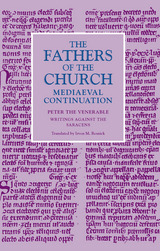
READERS
Browse our collection.
PUBLISHERS
See BiblioVault's publisher services.
STUDENT SERVICES
Files for college accessibility offices.
UChicago Accessibility Resources
home | accessibility | search | about | contact us
BiblioVault ® 2001 - 2024
The University of Chicago Press






